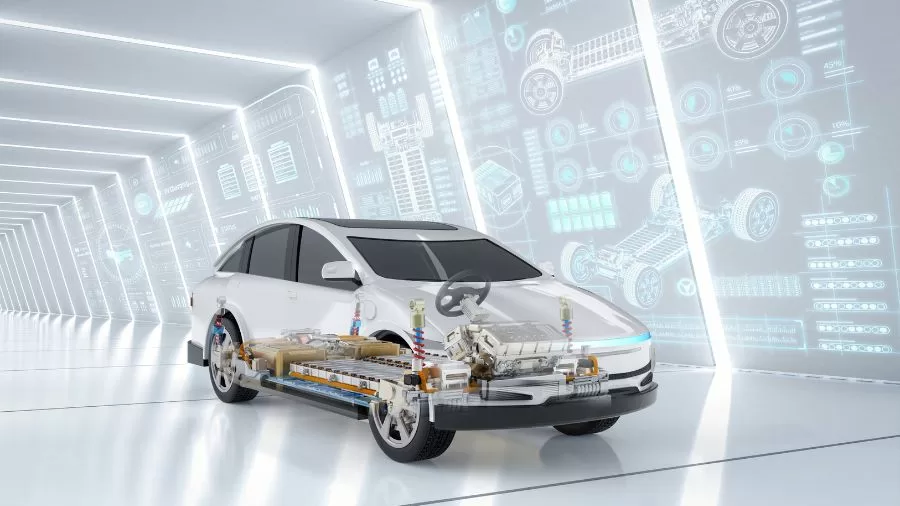Auto
The Role of Innovation and ESG in Modern Automotive Brands

- Automotive manufacturers are blending innovative designs with sustainable materials to enhance performance and minimise environmental impact.
- Advanced technologies like electric powertrains, self-driving vehicles, and connected car systems are pivotal in driving the automotive industry’s green transformation.
- ESG principles, including ethical sourcing and social responsibility, are becoming essential for manufacturers to build trust and ensure long-term success.
The automotive industry is undergoing a major transformation, with electric vehicles (EVs) taking the spotlight and a growing push for sustainable practices. It’s not just about technology; how brands present themselves to a socially conscious audience is equally crucial. As customers increasingly demand sustainable, innovative, and socially responsible products, automakers are responding with a combination of cutting-edge design, smart technology, and a strong commitment to environmental, social, and governance (ESG) goals.
Style Sustainability: More Than Just Green Paint
Eco-friendly design has evolved far beyond the days of dull, boxy cars. Today, automakers are proving their commitment to sustainability through bold, innovative styling. Sleek, contoured shapes not only enhance aesthetics but also improve aerodynamics, reducing drag and boosting efficiency. For instance, the Tesla Model S demonstrates how advanced design can elevate both performance and sustainability, enabling greater fuel economy and extended EV range by enhancing the vehicle’s ability to cut through the air.
In addition to aerodynamic designs, manufacturers are incorporating lightweight materials like carbon fibre and recyclable plastics to reduce vehicle weight and emissions. This not only benefits the environment but also enhances vehicle performance and handling, as lighter cars require less energy to move—a crucial factor for the efficiency of electric vehicles, where battery performance is key.
Circularity plays a pivotal role as well. Many companies are exploring ways to integrate recycled materials and create cars that can be easily disassembled and recycled at the end of their lifecycle. By focusing on regenerative design, automotive brands are ensuring that their vehicles can have a second life, reducing waste and conserving valuable resources.
Technology: Powering the Green Revolution
Electric powertrains and cutting-edge technologies are transforming how cars are designed and used, driving the automotive industry’s push toward sustainability. Ongoing advancements in battery technology are leading to longer driving ranges and faster charging times, while innovative electric motors offer exceptional performance with zero exhaust emissions. The transition to electric vehicles (EVs) significantly reduces carbon emissions, and with ongoing advancements in battery technology, EVs will become even more efficient and accessible to a wider range of customers.
Self-driving cars hold the potential to revolutionise transportation by reducing traffic congestion and improving safety. With automated driving, these vehicles can optimise routes, minimise accidents, and save fuel, all of which help reduce emissions and make better use of resources, enhancing the driving experience overall.
Connected vehicle technology further enhances sustainability with features like real-time traffic updates and predictive maintenance. These innovations not only help optimise driving routes and reduce fuel consumption but also enable cars to communicate with each other and the surrounding infrastructure, improving road safety and efficiency.
ESG: Promoting a Holistic Approach
Environmental, social, and governance (ESG) factors are increasingly central to a brand’s reputation and long-term success. Consumers are drawn to brands that align with their values, especially those that prioritise sustainability and social responsibility. These issues are no longer peripheral but are essential to building trust and loyalty in the marketplace.
Ethical sourcing is a major focus, with consumers demanding more transparency regarding the origin of products and the conditions under which they are made. Companies are dedicating efforts to responsible supply chains, ensuring they are free from conflict minerals and exploitative practices. Traceability is key, allowing customers to know the source and ethical standards behind their vehicle’s components.
Car manufacturers are also embracing social responsibility through investments in local communities and promoting diversity in their workforce. This can involve improving factory working conditions, supporting education, health, and job creation in local communities, and fostering inclusivity within their organisations.
Transparent and ethical company practices are vital for building confidence among consumers and stakeholders. This includes strong environmental management systems, an emphasis on data protection, and clear communication about sustainability goals. Brands that focus on good governance, ethical practices, and transparent communication are better positioned for long-term success, as these values are becoming increasingly important to both consumers and investors.
The Road Ahead
The automotive industry is in the midst of significant transformation, driven by technological advancements and a growing emphasis on environmental and social responsibility. By embracing sustainable design, investing in cutting-edge technology, and prioritising ESG principles, car manufacturers can meet the needs of a changing world while contributing to a more sustainable future for all.
As the demand for electric vehicles and eco-conscious practices increases, automotive companies that lead in innovation, design, and technology will be at the forefront of the industry. The future of mobility is green, smart, and socially responsible, and brands that successfully integrate these values into their strategies will be well-positioned to thrive in an ever-evolving market.


















































